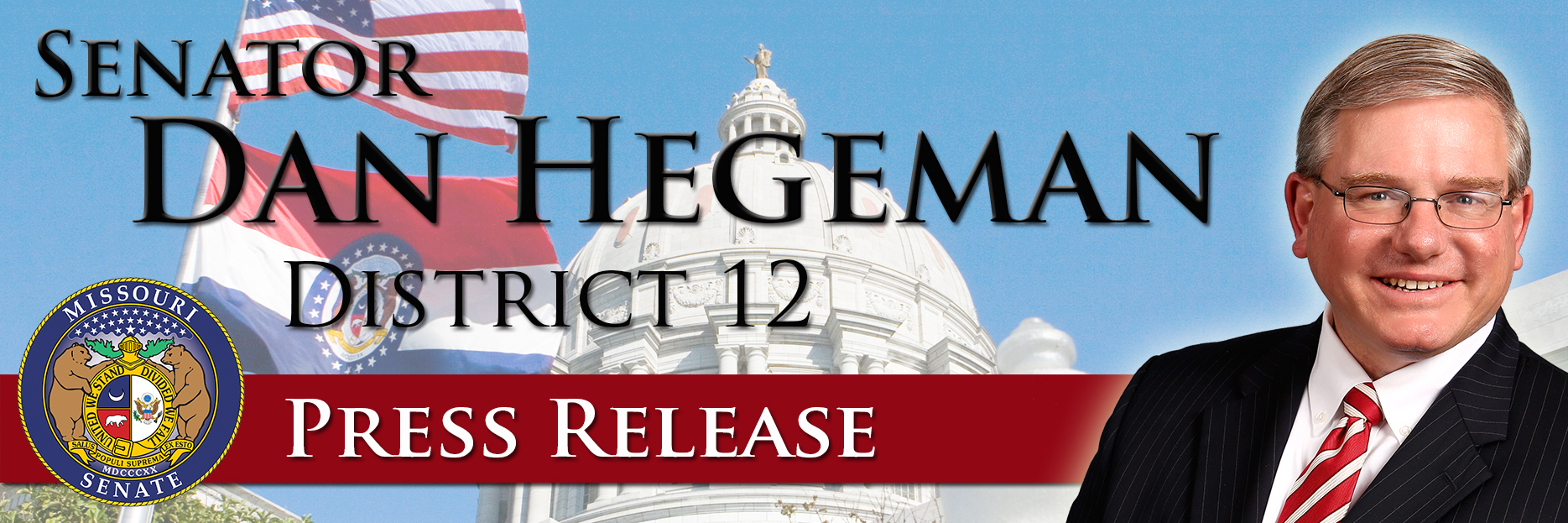
JEFFERSON CITY — Earlier today, the governor signed two measures sponsored by State Senator Dan Hegeman, R-Cosby, during the 2017 regular legislative session. Both measures, Senate Bill 111 and Senate Bill 283, will take effect Aug. 28, 2017.
“Senate Bill 111 and Senate Bill 283 will allow political subdivisions throughout the state to operate more efficiently and effectively,” said Hegeman. “I was happy to sponsor these important measures on behalf of the communities I represent, and I want to thank the governor for signing them into law.”
Senate Bill 111 requires a candidate for the office of public administrator to provide to the election authority a copy of a signed affidavit from one surety company that indicates he or she meets bonding requirements. After being elected to office, a public administrator must then enter into bond to the state in a sum of no less than $10,000 with one or more securities, rather than two or more securities.
“Senate Bill 111 will ensure we don’t have any more instances in which someone is elected to the office of public administrator and then later learns he or she is unable to obtain the necessary securities to meet the bonding obligations and is unable to take office,” Hegeman said.
In addition, the measure modifies provisions regarding bonds issued by a political subdivision, qualifications for candidates of public office, limited liability companies who own property in certain cities, and guardianships.
The governor also signed SB 283. Among other provisions, it deals with special road districts, which are political subdivisions established by residents at the local level for the purpose of maintaining the public roads under its jurisdiction. Typically, these roads are located in unincorporated areas.
“I filed SB 283 to address some of the unique problems facing a number of the special road districts in our rural areas,” Hegeman said. “For example, the significant flooding events in northwest Missouri over the last few years have caused residents to move their homes from these districts into other parts of the county. They still own, maintain and work their property, but they don’t live in the district anymore.
“Senate Bill 283 simply allows a voter who is registered in the same county in which the district is located, and who is also a landowner in the district, to sign a petition to place a levy on the ballot or to serve as a commissioner for the special road district.”
The legislation also provides that if two consecutive elections pass without any candidates for a special road district commissioner in municipal elections, the county commission shall appoint commissioners of the special road district for three-year terms thereafter, with no further elections being held.
